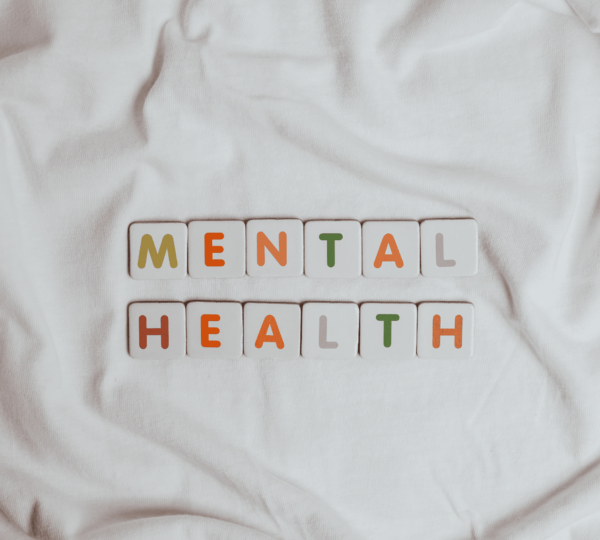
10 New Year’s Resolutions for a Happier and Healthier Life
One Saturday morning, I decided to reorganize my closet. It wasn’t an activity I had planned, just one of those spur-of-the-moment things. At first, it felt simple enough: pull everything out, sort what I didn’t need, and put the rest back. But as I dug deeper, I started finding things I hadn’t seen in years. A sweater I thought I’d lost. A pair of shoes I’d completely forgotten about. And then, an old diary from five years ago.
Curious, I flipped through the pages. It was full of scribbled goals and dreams, most of which I hadn’t thought about in years. Some I’d achieved without even realizing it, but others were untouched, abandoned somewhere along the way. I sat there, surrounded by piles of clothes, feeling both nostalgic and a little disappointed. Why had I let those goals slip away?
That day wasn’t just about cleaning my closet,it became a wake-up call. I realized how much life can pile on top of our intentions, burying them like old sweaters we forget we own. But it also reminded me of something important: it’s never too late to pull those goals back out, dust them off, and give them another shot.
The new year is a fresh start, and what better time to focus on making small but impactful changes in your life? From improving physical health to managing stress, the resolutions you set can play a significant role in leading a happier, healthier year. The key is choosing resolutions that are achievable and focus on both long-term growth and immediate well-being. Here are ten New Year’s resolutions that can help you live a more fulfilling life.
1. Prioritize Physical Health with Regular Exercise
Exercise doesn’t have to mean hitting the gym every day or running marathons. It’s about finding a routine that fits your lifestyle and goals. For example, you could start with a simple goal like walking 30 minutes a day. This can be split into two 15-minute sessions—one in the morning and one in the evening. You might be surprised at how quickly this adds up to noticeable health improvements, such as better sleep and reduced stress.
After working for several hours, take a 10-15 minute break to walk outside, stretch, or even perform some light exercises. This will help clear your mind and increase your energy for the remainder of the day.
According to the American Heart Association, just 150 minutes of moderate exercise each week can significantly reduce the risk of heart disease and improve mood.
2. Build a Morning Routine that Sets the Tone for Success
Starting your day right can have a huge impact on the rest of your day. A consistent morning routine doesn’t have to be complicated. Start by setting aside a few minutes for a calming activity like meditation, stretching, or reading. These small rituals can set a peaceful tone and help you start your day with focus and clarity.
Try waking up 15 minutes earlier than usual to drink water and stretch. This simple action can make a significant difference in how alert and focused you feel throughout the morning.
Research from Harvard Business Review shows that morning routines involving mindfulness can boost productivity and reduce stress levels during the day.
3. Cultivate a Growth Mindset
A growth mindset is about believing that you can improve your skills and abilities with effort and persistence. This can be incredibly helpful when facing challenges, whether in personal or professional life. Instead of viewing setbacks as failures, a growth mindset helps you see them as opportunities to learn and improve.
If you’ve been struggling with a particular skill, like learning a new language or mastering a software tool, try setting small, achievable goals. For example, commit to learning 10 new words or phrases each week. Over time, these incremental improvements will add up.
Research from Stanford University highlights how a growth mindset can boost performance and resilience, particularly in challenging tasks.
4. Focus on Mental Health with Mindfulness Practices
Taking care of your mental health is just as important as caring for your physical health. Mindfulness practices such as deep breathing, meditation, or journaling can help reduce stress, improve focus, and boost emotional well-being.
If you’re feeling overwhelmed during the day, take five minutes to practice deep breathing. Try inhaling for four seconds, holding the breath for four seconds, and exhaling for four seconds. This quick mindfulness exercise can help you regain focus and calm down in moments of stress.
Dr. Jon Kabat-Zinn, a pioneer in mindfulness research, suggests that mindfulness practices can help reduce anxiety and improve mental clarity, especially during stressful moments.
5. Foster Healthy Relationships and Build a Supportive Network
Nurturing positive relationships is vital for emotional health. Having a supportive network can help you navigate challenges and keep you motivated. Make it a priority to spend more time with people who make you feel happy, supported, and energized.
Set aside a day each month to connect with friends or family members, whether through a lunch date or an afternoon walk. Consistent, positive social interactions can significantly boost your mood and sense of belonging.
The Mayo Clinic reports that strong social connections can lower the risk of depression and anxiety, and improve overall life satisfaction.
6. Improve Financial Health by Budgeting and Saving
Financial stress can have a significant impact on your mental well-being, so making smart decisions about money is essential for a healthier life. This year, consider creating a budget and setting savings goals that align with your financial aspirations.
Start by tracking your expenses for one month to see where your money goes. Identify areas where you can cut back—like reducing impulse purchases or cooking at home more often—and put the savings toward building an emergency fund.
According to Forbes, having a solid financial plan can reduce stress and improve overall quality of life by providing a sense of security and control.
7. Take Breaks and Focus on Work-Life Balance
It’s easy to get caught up in work or daily tasks and forget to take breaks, but constant work without rest can lead to burnout. Taking regular breaks throughout the day can help improve productivity, reduce stress, and maintain mental clarity.
After every 4 hours of focused work, take a 20-minute break to stretch, walk around, or grab a healthy snack. This simple practice can help you return to your tasks feeling refreshed and ready to tackle the next challenge.
The World Health Organization stresses the importance of work-life balance and taking regular breaks to prevent burnout and chronic stress.
8. Set SMART Career Goals
Whether you’re aiming for a promotion, a new job, or new skills, setting SMART (Specific, Measurable, Achievable, Relevant, Time-bound) career goals can help you stay focused and motivated.
If you want to improve your professional skills, break down the goal into smaller tasks. For example, commit to completing one online course every quarter related to your field. This will not only enhance your knowledge but also improve your job satisfaction and career trajectory.
Research from Psychology Today shows that people who set specific, measurable goals are more likely to achieve their career objectives.
9. Practice Gratitude and Positive Thinking
Cultivating an attitude of gratitude can significantly improve your emotional well-being. Studies show that regularly practicing gratitude can lead to better mental health, stronger relationships, and higher levels of happiness.
Real-life example: Start a daily gratitude journal. Each night before bed, write down three things you are grateful for. This simple practice can shift your mindset and help you appreciate the positive aspects of your life.
According to the University of California, people who practice gratitude experience increased happiness and reduced feelings of depression and stress.
10. Commit to Personal Development and Lifelong Learning
Personal growth doesn’t stop after formal education. Making a resolution to continue learning can help you stay adaptable and open to new opportunities, both personally and professionally.
If you want to learn a new skill, such as cooking, art, or coding, set a goal to practice it for 30 minutes a day. Whether it’s watching tutorials or reading books, regular learning keeps your mind engaged and your skills sharp.
Lifelong learning has been linked to better cognitive function and mental health, particularly in older adults, according to research from the American Psychological Association.
Conclusion
As we step into the new year, it’s a great time to set resolutions that prioritize both our health and happiness. By focusing on physical health, mental well-being, relationship-building, financial stability, and personal development, you can create a well-rounded life that leads to long-term fulfillment. Remember, setting realistic and actionable goals is key to success. Whether it’s committing to a fitness routine or taking time to practice mindfulness, each small step brings you closer to a happier and healthier year.
References:
- American Psychological Association (APA). (2023). New Year’s Resolutions.
- Harvard Health. (2023). The Benefits of Regular Exercise.
- Forbes. (2023). Why Morning Rituals Matter.
- Psychology Today. (2023). Mindfulness at Work: How It Enhances Decision-Making.
- National Institutes of Health (NIH). (2022). Mindfulness for Mental Health.
- Mayo Clinic. (2023). The Importance of Social Connections.
- Gallup. (2023). The Impact of Financial Stress on Workplace Productivity.
- World Health Organization. (2023). Burnout and its Effects on Health.
- McKinsey & Company. (2023). How Learning and Development Drives Organizational Success.
- University of California. (2022). Gratitude and Its Impact on Job Satisfaction.













